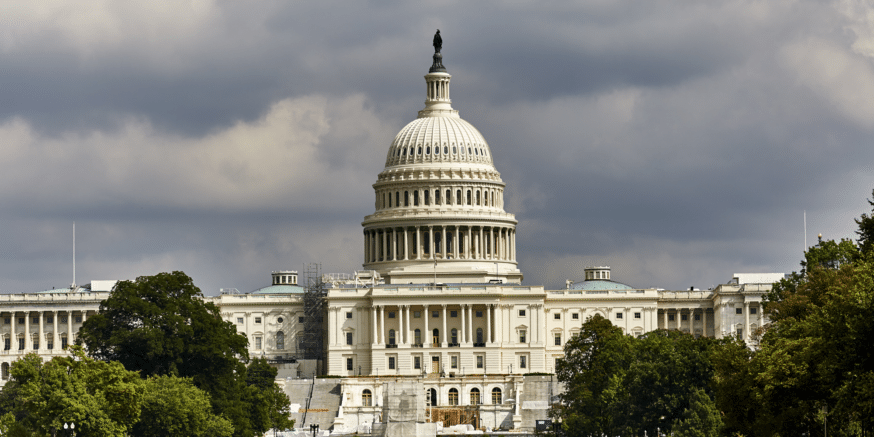TLDR
- AFL-CIO warns Senate crypto bill lacks necessary worker protections and oversight.
- Labor union criticizes bill for exposing retirement plans to risky crypto assets.
- AFL-CIO argues the Senate bill could risk financial stability like the 2008 crisis.
- Senate crypto bill could create unregulated tokenized securities outside SEC control.
A major U.S. labor union has voiced strong concerns over a Senate bill designed to regulate the cryptocurrency market. The AFL-CIO, the largest federation of trade unions in the U.S., argues that the proposed legislation lacks critical safeguards to protect workers and the financial system. Their concerns center on potential risks to retirement funds, workers’ pensions, and broader financial stability. The union calls for greater oversight and more stringent regulations.
AFL-CIO Criticizes Senate’s Crypto Bill for Worker Protection Gaps
The American Federation of Labor and Congress of Industrial Organizations (AFL-CIO) has raised significant issues with the Responsible Financial Innovation Act (RFIA), a Senate draft bill aimed at regulating the cryptocurrency industry. In a letter to the Senate Banking Committee, AFL-CIO Director Jody Calemine expressed deep concerns about the bill’s failure to adequately protect workers.
Calemine stated that while the AFL-CIO supports efforts to modernize financial regulations, the RFIA would expose workers to increased risks. He specifically criticized the bill’s lack of sufficient oversight, arguing that it would allow the cryptocurrency industry to expand further into the financial system without the necessary regulatory framework to safeguard workers’ interests.
The Bill’s Risk to Workers’ Retirement Funds
A key point of contention is the potential impact of the RFIA on workers’ retirement plans. The AFL-CIO warns that the bill could open the door for risky crypto assets to be included in retirement portfolios such as 401(k)s and pensions. Calemine emphasized that this would not protect workers from the volatility of the cryptocurrency market, but rather increase their exposure to it.
The union argues that the bill offers only a “facade of regulation,” which would fail to shield retirement funds from the unpredictable nature of cryptocurrencies. By allowing these volatile assets to be included in workers’ long-term savings plans, the union fears that the bill may jeopardize the financial stability of countless Americans who rely on these funds for their future security.
Increased Systemic Risks to Financial Stability
Another concern raised by the AFL-CIO involves the bill’s broader impact on the financial system. The union claims that if the bill were to pass in its current form, it could introduce new risks to the U.S. economy. One of the main issues is the potential for banks to custody cryptocurrencies, which would expose the taxpayer-backed Deposit Insurance Fund to greater risk.
Calemine pointed out that this could place consumer bank deposits at risk, as banks could potentially engage in high-risk crypto activities without adequate oversight. He further noted that the bill’s provisions could encourage banks to engage in crypto-based hedge fund trading activities, which the AFL-CIO believes could be even riskier than the practices that led to the 2008 financial crisis.
Concerns About Tokenization and Lack of SEC Oversight
The AFL-CIO has also voiced concern over the RFIA’s approach to the tokenization of securities and assets. The bill includes provisions that could allow private companies to create digital tokens representing traditional securities. The union argues that this could create a “shadow” market for stocks and other assets outside the regulatory oversight of the U.S. Securities and Exchange Commission (SEC).
By allowing tokenized assets to bypass traditional securities regulations, the AFL-CIO fears that this could lead to a lack of transparency and investor protection. The union urges lawmakers to reconsider these provisions and implement stronger regulatory measures to ensure that the crypto market operates within a secure and well-regulated framework.
The Future of the RFIA
The RFIA, introduced by Senators Cynthia Lummis and Kirsten Gillibrand, has undergone revisions since its initial introduction in 2022. The Senate Banking Committee is currently reviewing the bill as an alternative approach to regulating cryptocurrency, diverging from the market structure bill passed by the House in July.
While the RFIA remains a draft and has not yet been formally introduced, the AFL-CIO’s stance has raised significant questions about the potential risks the legislation poses to workers and the U.S. economy. As lawmakers continue to discuss the bill, it remains to be seen whether the concerns raised by the labor union will influence future revisions of the legislation.






